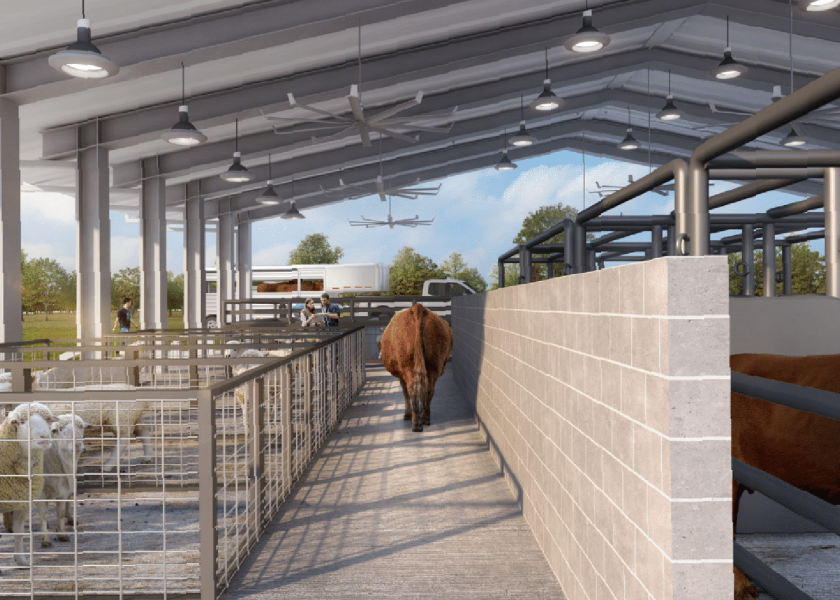Gift To Animal Reproductive Biotechnology Center at Texas A&M

The Department of Animal Science in the Texas A&M College of Agriculture and Life Sciences is the recipient of a five-year, multi-million-dollar gift to help fund the planned $9.9-million Animal Reproductive Biotechnology Center and a professorship in the program.
ReproLogix, of Fort Scott, Kansas, is pledging its support of the facility that will include research labs, educational spaces, animal holding and handling areas, and dedicated research lab space for emerging technologies and practices for both academic and industry partner use.
“ReproLogix is one of the primary players in the space of applied reproductive technologies,” said Cliff Lamb, Ph.D., head of the Department of Animal Science, Bryan-College Station. “We are honored by their participation and support in getting our new facility started.”
Addressing a major problem in the livestock industry
Pregnancy loss takes revenue away from producers, said Nathan Wells, ReproLogix CEO, Fort Scott, Kansas.
“It’s a big problem that needs to be solved,” Wells said. “We are committed to working with Texas A&M and the animal science department because we believe very much in the vision of the reproductive center.”
The new state-of-the-art Animal Reproductive Biotechnology Center is an important step in enhancing the department’s status as a global leader in domestic animal pregnancy and developmental planning, Lamb said. The facility will further the department’s pursuit of innovation and collaboration through academic and industry-partnered research, with a focus on the latest techniques and hands-on instruction.
ReproLogix is a leader in the field of in vitro fertilization, IVF, and hopes to promote increased genetic potential by utilizing such reproductive tools.
“I believe having this large commitment demonstrates that industry leaders like ReproLogix see Texas A&M as an international leader in this field,” Lamb said. “This also validates the fact that they see us as doing innovative work that will change the technologies for future generations.”
A dedicated professorship in animal reproductive biology
Distributions from the ReproLogix Animal Science Faculty Professorship will support the teaching, research, service and professional development activities of the holder, whose focus is applied reproductive biology.
“It’s essential that we generate science our partners can trust and apply to the sustainability of livestock systems,” Lamb said. “To do this, we will need to be more creative and entrepreneurial to effectively support our programs as we retain our status as the leading Department of Animal Science in the world.”
Essential to that goal are instructional facilities for training and teaching the students and stakeholders needed to improve production efficiency in animal agriculture and enhance human health, he said.
Future gifts for the Animal Reproductive Biotechnology Center
Lamb said architects will soon be selected for the new $9.9 million building.
The Texas A&M Foundation is a nonprofit organization that exists for the benefit of Texas A&M University. The Foundation works with former students, corporations and other Texas A&M supporters to match their charitable interests with the university’s priorities. Gifts create scholarships, advance faculty endeavors, enhance student programs and fund new buildings, ultimately creating a brighter future for Texas A&M, one relationship at a time.
To make a donation for the new Animal Reproductive Biotechnology Center, go to http://give.am/ANSCConstructionFund.







